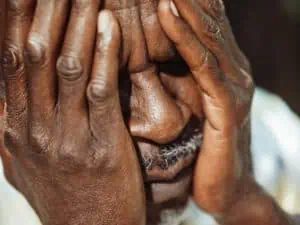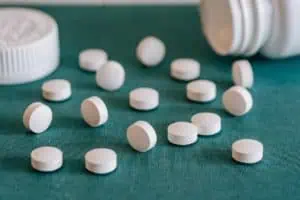
Depression is a mood disorder characterized by persistent sadness, lack of interest in activities, lethargy, fatigue, changes in appetite or sleep patterns, low energy levels, pessimism, or loss of self-esteem.
Listen In
When you’re suffering from major depressive disorder (MDD), your thoughts, feelings, and behavior are all affected.
Fortunately, there is treatment. Depression can leave you feeling sad or having less interest in activities you once liked. In addition, it can cause a wide range of mental and physical issues, as well as a loss in one’s capacity to operate at work and home.
The following are examples of mild to severe depression symptoms:
- Having a low mood or feeling depressed
- Lack of interest or enjoyment in once-pleasurable activities.
- Appetite changes
- Sleep issues or sleeping too much are common causes of insomnia.
- Decrease in energy or an increase in exhaustion
- Slowed movement or speech
- Having a sense of shame or guilt
- Thinking, focusing, or making decisions is difficult for you.
- Suicidal or homicidal thoughts
For a diagnosis of depression, these symptoms must persist for two weeks or more to qualify as a depressive episode.
The symptoms of depression can be similar to medical diseases (e.g., thyroid difficulties, a brain tumor, or a vitamin shortage).
Approximately one in every fifteen adults (6.7 percent) suffers from depression each year. And 16.6% of persons will go through a period of depression throughout their lifetime. Depression can strike anyone at any moment, but it is most common between the ages of late adolescence and mid-twenties.
Depression Is Different From Sadness or Grief

It is challenging to deal with the death or the loss of a relationship. However, experiencing sadness or grief in the wake of such events is quite normal. Grieving people may describe themselves as “depressed” in the wake of a loss.
Being depressed, on the other hand, is a much more severe condition. Nevertheless, grieving is a normal and individual process that shares some characteristics with depression.
Anxiety and retreat from social activities are common features of sadness and depression.
When someone suffers from major depression, their thoughts often turn to taking one’s own life because they believe they are useless or unworthy of living.
Differentiating between grief and depression is critical because it can help people get the help, support, or treatment they require.
How Is Depression Treated?
The good news is that depression is one of the more manageable mental illnesses. Approximately 80% to 90% of patients with depression react favorably to treatment. In addition, the vast majority of people see some improvement in their symptoms.
Before beginning treatment, a complete diagnostic evaluation, including an interview and a physical examination, should be performed licensed health care provider.
Blood tests may be carried out in some circumstances to rule out a medical issue such as a thyroid disorder or a vitamin deficit as the cause of depression.
Medication

Brain chemistry may contribute to depression and may play a role in treatment. As a result, antidepressants may be prescribed to help alter one’s brain chemistry. These are not sedatives, “uppers,” or tranquilizers. They do not form habits. In general, antidepressant medications have no stimulating effect on people who are not depressed.
Although antidepressants may provide some relief within the first week or two of use, full benefits may not be realized for two to three months. Therefore, if a patient shows little or no improvement after a few weeks, their psychiatrist may adjust their dosage or substitute another antidepressant.
Other psychotropic medications may be beneficial in some cases. However, it is critical to notify your doctor if medication fails to work or experience side effects.
Experts typically advise patients to continue taking medication for six or more months after their symptoms have improved.
Psychotherapy

Psychotherapy, also known as “talk therapy,” is sometimes used alone to treat mild depression; however, for moderate to severe depression, psychotherapy is frequently used in conjunction with antidepressant medications. In addition, CBT (cognitive behavioral therapy) is effective in treating depression.
CBT is a type of therapy that focuses on problem-solving in the present moment. CBT assists a person in recognizing distorted thinking to change thoughts and behaviors to respond to challenges more positively.
We also use a type of therapy called interpersonal psychodynamic therapy with has proven to be an effective treatment for depression. This therapy approach looks at unhelpful patterns of how we think about and relate to ourselves and others. It works to form more helpful, or adaptive, patterns of relating to others, ourselves, solving problems, and tolerating distress.
Psychotherapy may involve only one person, but it may also involve others. Family or couples therapy, for example, can assist in addressing issues within these close relationships.
Group therapy brings individuals with common illnesses together in a supportive environment, and it can help participants learn how others deal with similar situations.
Treatment can take a few weeks or months, depending on the severity of the depression. However, considerable progress can be made in as few as ten to fifteen sessions in many circumstances.
Electroconvulsive Therapy
Electroconvulsive Therapy (ECT) is a medical treatment that has traditionally been reserved for patients suffering from severe major depression not responding to other treatments. It has to do with a brief electrical stimulation of the patient’s brain while being sedated.
ECT is typically administered two to three times per week for six to twelve treatments. A team of trained medical professionals, including a psychiatrist, an anesthesiologist, and a nurse or physician assistant, is usually in charge. This is a treatment option at Sarasota Memorial Hospital and is not offered at Davenport Psychology.
Self-help and Coping

Regular exercise helps many people create positive feelings and improves their mood. Furthermore, a good diet, adequate sleep, and avoiding alcohol (a depressive) might also help alleviate depression symptoms.
How Our Experts Can Help
Davenport Psychology takes a more integrative approach to treatment, taking your body, mind, and spirit into account. We believe each of these areas is crucial for healing from depression. As a result, our doctors have helped countless patients beat their depression—and we’d love to help you do the same.
Schedule an appointment with one of our experts, Dr. Charles R. Davenport. We are committed to helping people with all stages of life, so we understand what you’re going through. You don’t have to face your mental health concerns alone. Let us help you find change.

